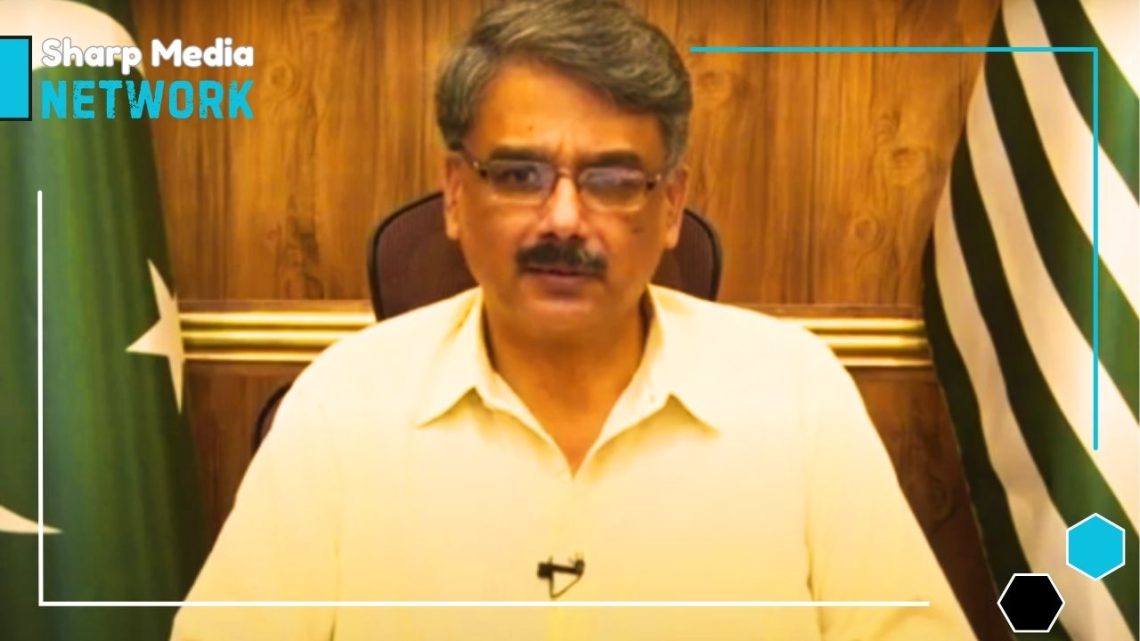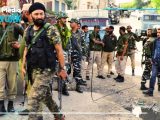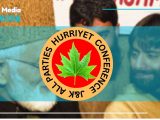
AJK Government Forms Committee to Address Protest Law Concerns
December 3, 2024 Off By Sharp MediaThe Azad Jammu and Kashmir (AJK) government has announced the formation of a broad-based consultative committee to address mounting public concerns regarding the Peaceful Assembly and Public Order Ordinance 2024. This decision was made during a cabinet meeting chaired by Prime Minister Chaudhry Anwarul Haq. The ordinance, which imposes strict regulations on public gatherings, has stirred significant opposition and legal challenges.
Under the new law, unregistered organizations are barred from holding protests or public gatherings. Registered organizations, on the other hand, must seek prior written approval from the relevant deputy commissioner at least a week in advance. This approval process requires organizers to specify details such as the time, location, and duration of the planned event. The law’s restrictive nature has raised alarms about its potential to stifle democratic rights, especially freedom of expression and assembly.
In response to the public outcry, the AJK Bar Council challenged the ordinance in the Supreme Court after their petition was dismissed by the High Court. The move to form a consultative committee is seen as an attempt by the government to quell the growing discontent and find a middle ground on the issue. The committee will include representatives from various sectors, such as political parties, religious groups, lawyers’ bodies, retired judges, bureaucrats, and religious scholars. This diverse representation aims to ensure that all viewpoints are considered while addressing the concerns surrounding the ordinance.
The AJK government, led by PM Chaudhry Anwarul Haq, has defended the ordinance as a necessary measure to maintain law and order and protect public safety. The government argues that it is committed to safeguarding the lives and property of its people. In recent months, the administration has taken several bold steps to address local issues, such as subsidizing electricity and wheat, approving funds for infrastructure projects like the Rathoa-Haryam Bridge, and cracking down on criminal enterprises like cigarette and timber mafias. These actions have been presented as proof of the government’s commitment to the welfare of its citizens.
However, the formation of the consultative committee has not been universally accepted. The surprising refusal of Shaukat Nawaz Mir, a prominent member of the JKJAAC core committee, to participate in the process has raised questions about his true intentions. Mir, who has positioned himself as a self-proclaimed revolutionary fighting for the rights of the people, has been accused of instigating agitation and creating unrest. Critics argue that Mir’s actions are not about addressing the legitimate concerns of the public, but rather about undermining the government’s authority and creating a law and order crisis. It is alleged that Mir is acting under the influence of external forces, possibly aligned with the HIAs, to further his own political agenda.
While the formation of the committee may seem like a step toward addressing public grievances, its true effectiveness remains to be seen. If the government is genuinely committed to democratic principles, it must ensure that the committee’s findings lead to meaningful changes that protect citizens’ rights without compromising public order.

